Related Research Articles
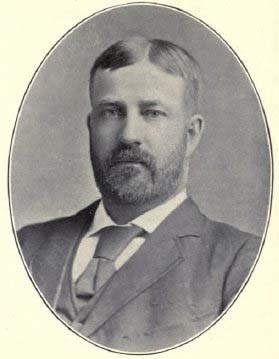
Sir Rodmond Palen Roblin was a businessman and politician in Manitoba, Canada.

The 1973 Manitoba general election was held on June 28, 1973 to elect Members of the Legislative Assembly of the Province of Manitoba, Canada. It was won by the social-democratic New Democratic Party, which took 31 of 57 seats to win government in its own right for the first time. The Progressive Conservative Party finished second with 21, while the Manitoba Liberal Party took the remaining five. The Manitoba Social Credit Party lost its only seat.

The 1969 Manitoba general election was held on June 25, 1969 to elect Members of the Legislative Assembly (MLAs) of the Canadian province of Manitoba. It was a watershed moment in the province's political history. The social-democratic New Democratic Party emerged for the first time as the largest party in the legislature, winning 28 out of 57 seats. The governing Progressive Conservative Party fell to 22, and the once-dominant Liberal Party fell to an historical low of five. The Social Credit Party won one seat, and there was also one Independent elected.
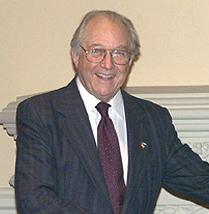
The 1966 Manitoba general election was held on June 23, 1966, to elect Members of the Legislative Assembly of the Province of Manitoba, Canada. It resulted in a third consecutive majority win for the Progressive Conservative Party led by Dufferin Roblin. Roblin's Tories won 31 seats, against 14 for the Liberal Party, 11 for the New Democratic Party and one for Social Credit.
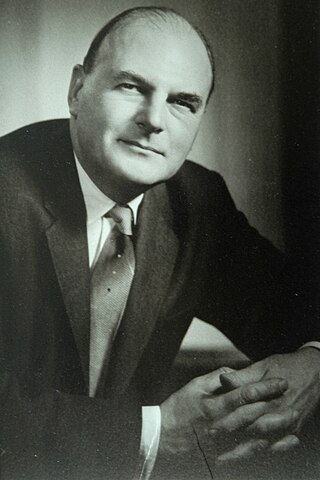
John William McLeod Thompson was a lawyer, politician and judge in Manitoba, Canada. He served in the Legislative Assembly of Manitoba from 1953 to 1962 as a Progressive Conservative, and held several cabinet posts in the government of Dufferin (Duff) Roblin.
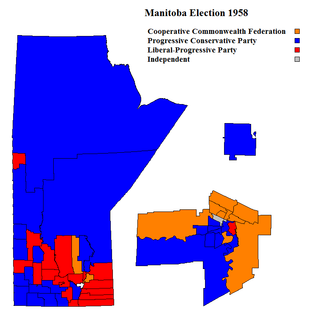
The 1958 Manitoba general election was held on June 16, 1958 to elect Members of the Legislative Assembly of the Province of Manitoba, Canada. The election resulted in a minority victory for the Progressive Conservative Party under the leadership of Dufferin Roblin.
The 1920 Manitoba general election was held on June 29, 1920 to elect members of the Legislative Assembly of the Province of Manitoba, Canada.
The 1915 Manitoba general election was held August 6, 1915 to elect members of the Legislative Assembly of the Province of Manitoba, Canada. The Liberals under Norris won a landslide majority with 40 seats, replacing the Conservative government that had ruled the province since 1899.
The 1914 Manitoba general election was held on July 10, 1914 to elect members of the Legislative Assembly of the Province of Manitoba, Canada.
James Henry Howden was a politician in Manitoba, Canada. He served in the Legislative Assembly of Manitoba as a member of the Conservative Party from 1903 to 1915, and was a cabinet minister in the government of Rodmond Roblin.
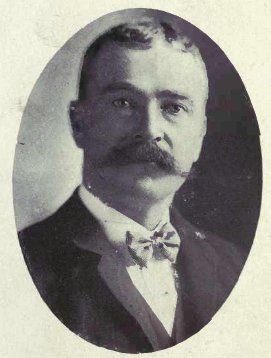
David Henry McFadden was a politician in Manitoba, Canada. He served in the Legislative Assembly of Manitoba from 1892 to 1907, and again from 1910 to 1915. McFadden was a Conservative, and served as a cabinet minister in the governments of Hugh John Macdonald and Rodmond Roblin.
George Robson Coldwell was a politician in Manitoba, Canada. He served in the Legislative Assembly of Manitoba from 1907 to 1915, and was a cabinet minister in the government of Rodmond Roblin. Coldwell was a member of the Conservative Party.
The 1910 Manitoba general election was held on July 11, 1910 to elect members of the Legislative Assembly of the Province of Manitoba, Canada.

Colin H. Campbell was a politician in Manitoba, Canada. He served in the Legislative Assembly of Manitoba as a Conservative from 1899 to 1914, and was a cabinet minister in the governments of Hugh John Macdonald and Rodmond Roblin.
The 1903 Manitoba general election was held on July 20, 1903, to elect members of the Legislative Assembly of the Province of Manitoba, Canada.

Stanley William McInnis was a Canadian dentist and politician in Manitoba. He served in the Legislative Assembly of Manitoba from 1899 to 1907 as a member of the Conservative Party, and was briefly a cabinet minister in the government of Rodmond Roblin.
Glenlyon Archibald Campbell was a politician in Manitoba, Canada. He served in the Legislative Assembly of Manitoba from 1903 to 1908, and in the House of Commons of Canada from 1908 to 1911. Campbell was a member of the Conservative Party of Canada.
John Hume Agnew was a politician in Manitoba, Canada. He served in the Legislative Assembly of Manitoba from 1903 until his death as a member of the Conservative Party, and was a prominent cabinet minister in the government of Rodmond Roblin.
The position of Provincial Secretary was particularly important in Manitoba from 1870 to 1874, as that province's institutions were being established. The province had no Premier during this period, and its Lieutenant-Governor acted as the de facto leader of government. The early Provincial Secretaries were the most prominent elected officials in the province, and are retrospectively regarded as Premiers in many modern sources.
References
- ↑ "Events in Manitoba History: Manitoba Provincial Election (1907)". www.mhs.mb.ca. Retrieved May 5, 2022.
- ↑ "Provincial General Elections". www.electionsmanitoba.ca. Retrieved May 5, 2022.